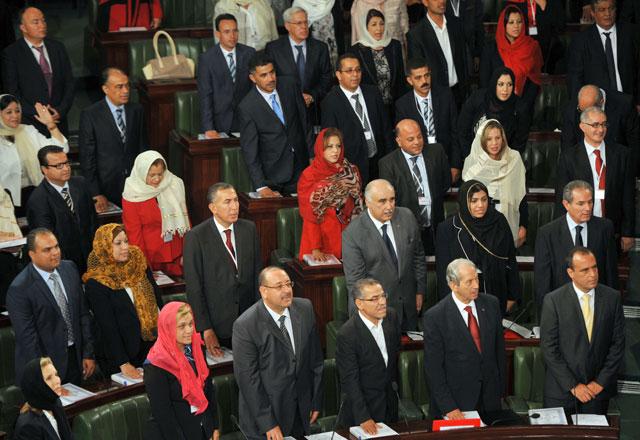TUNIS — Debate over Tunisia’s new constitution was suspended Sunday after a deputy claimed he had received death threats because a colleague had accused him of being an “enemy of Islam”.
The outburst came a day after the National Constituent Assembly (NCA) adopted articles making Islam the state religion but guaranteeing freedom of conscience.
Sunday’s row broke out after Mongi Rahoui, a deputy from the leftwing Popular Front, accused Habib Ellouze, of the Islamist ruling party Ennahda, of saying he was an enemy of Islam.
Such words are not empty in Tunisia, a country with a militant Salafist minority suspected of assassinating two opposition politicians last year that threw the country into a grave political crisis.
Addressing Ellouze, a member of Ennahda’s hardline wing known for controversial comments, Rahoui asked: “How much more blood must there be before we understand that we are united [under Islam]”?
“I tell you that I am a Muslim; that my father, my mother, my grandfather and my people are Muslims.”
“What [Ellouze] said yesterday, that I am an enemy of Islam, has lead to death threats against me.”
Ellouze had been quoted by a radio station Saturday as saying Rahoui is “known for his animosity toward religion”.
He said his words had been misinterpreted and apologised to Rahoui.
The session began at 1100 GMT, but was suspended twice when angry protests from some deputies made work impossible.
Elected in October 2011, the NCA was due to have drafted and adopted the text within one year.
But its work was delayed by deep divisions between Ennahda and the opposition, aggravated by a rise in Islamist attacks and sometimes violent social unrest.
The deadlock became a full-blown crisis when suspected jihadists assassinated an opposition MP in July, paralysing political life.
Ennahda, which has been sharply criticised for failing to rein in jihadists, agreed in October to step down as part of a roadmap brokered by mediators.
Prime Minister Ali Larayedh has agreed to resign, turning over power to a transitional premier, Mohamed Jomaa, but insists a constitution and electoral law are in place first to pave the way for elections this year.
To be adopted, the constitution will need approval by two-thirds of the assembly’s 217 members. Otherwise, it will have to be put to a referendum.

















